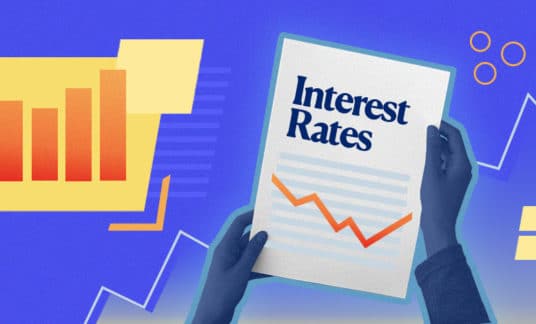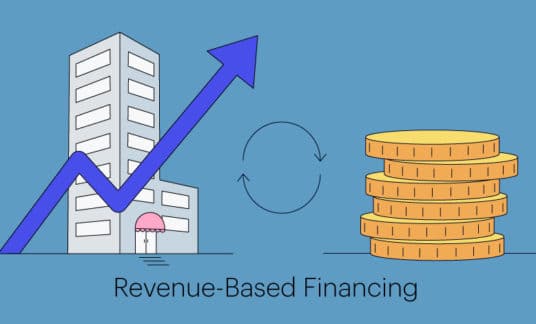Equity financing, by definition, is when a small business owner raises money from outside investors.
These financial backers contribute capital to a business in exchange for partial ownership in the company. This is in contrast to debt financing, in which a small business owner borrows money without giving up any ownership in the business.
How Equity Financing Works
When a business is just starting out or trying to expand, it may need additional capital. This funding can be borrowed from a bank or other lender, but the business owner must have good credit to qualify, and the money must be repaid with interest.
Equity financing provides a different approach, allowing entrepreneurs to raise money even if they have bad credit — and they typically don’t have to pay it back over time.
With equity financing, business owners raise funds by selling their shares of the organization. By selling a portion of their stake in the business, they gain access to capital to address immediate needs.
-
An Equity Financing Example
If you have a business and need to build a new facility, you have 3 options for how to pay for it:
- Pay cash
- Take out a loan
- Raise equity by selling part of your company to an investor
The first option only is available if you have enough cash saved up to cover the cost of construction — which most small business owners don’t.
The second option allows you to maintain ownership of your company, but it’s only a possibility if you have decent credit. Even then, you’ll still have to pay back the money over time.
However, if you have a sound, profitable business, the third option may be available even if you have bad credit. One consequence of equity financing: You’ll have to give up partial ownership of your business. However, you won’t have to repay the money over time. Instead, you’ll own a smaller portion of a potentially much more valuable company.
What’s In It for Equity Financing Investors?
When you raise money from outside investors, those investors assume many of the risks of equity financing. They do so in the hopes of generating a return on their investment, namely if the company either makes a consistent profit or is sold.
Beyond gaining ownership as a shareholder of the business and the dividends from those shares, an equity investor plays a role in making decisions concerning the future of the business. While they may not have the same voting rights as others (depending on their equity stake), they still have some say in company decisions.
Who Should Use Equity Financing?
The businesses that are the best candidates for equity financing are those who are:
- Looking to obtain massive growth
- Considering an initial public offering (IPO)
- Unable to secure debt financing based on creditworthiness
- Wanting to avoid monthly payments for access to capital
Of course, there are other reasons a business would want to use equity financing products over debt-based financing. Still, for our purposes, these are the main scenarios that matter to entrepreneurs.
While equity financing can be a great option, it’s only right in certain circumstances. If you have excellent credit and want to maintain control of your business, then equity financing may not be the best option.
4 Different Types of Equity Financing Providers
1. Angel Investors
Angel investors are individuals who fund early-stage businesses that show signs of great potential at scale. An “angel” can be a family member, friend, entrepreneur or retired venture capitalist investing their funds into a business in exchange for equity.
Angel investors are mostly focused on helping a young business establish itself in the market while guiding major business decisions, including product road mapping, hiring, logistics and anything else they may have expertise or experience in. These investors can provide capital all at once, or they can strategically disperse funds as dictated by the business’s growth.
2. Venture Capital
Venture capitalists (VCs) are individuals who work collaboratively. One of the most significant advantages they offer is that instead of access to one investor’s expertise and experience, your business has an entire company dedicated to increasing its value.
VCs mainly target early-stage businesses with high potential.
For entrepreneurs looking to raise VC capital or private-equity financing, the process is a bit similar to deciding to apply for a small business loan: You choose how much money you’re looking for and then begin shopping around for the best fit. The difference is that you aren’t negotiating payment schedules or interest rates. Instead, you must decide how much equity you’re willing to part with and at what valuation.
3. Friends and Family
If you aren’t looking to be listed on the New York Stock Exchange, approaching your friends and family might be a realistic place to start for equity financing.
Before approaching your inner circle about the possibility of a potential equity investment, make sure the relationships (both the personal and the professional) are treated with care.
There should be a formal agreement in place that details all of the terms and agreements between your friend or family member and your business. This should help keep things defined and hopefully prevent any confusion in the relationship.
4. Crowdfunding
Crowdfunding platforms are a social, democratic way of raising money for your business. It’s essentially a “best idea wins” scenario that allows you to promote your mission or product.
The downside to crowdfunding platforms is that they are an “all or nothing” outcome: If you’re unable to reach your goal, you won’t receive anything. Be wary of setting your funding goals too high.
The Pros and Cons of Equity Financing
Pros
- You’ll get more flexible capital: One of the advantages of equity financing is that you’ll gain money that doesn’t have to be repaid over time. Avoiding the cost of regular loan payments will give you a lot more flexibility with your budgeting.
- Credit scores are less important: If you have bad credit or no credit, equity financing may be a better option for securing the funds you need to grow your business. While an investor may inquire about your credit history or score, a poor score won’t prohibit you from working with them.
- You’ll gain a valuable partner: Equity financing provides opportunities to work closely with your investors. These investors often have the expertise that can be shared with your business. This type of connection could prove to be invaluable.
- You can always borrow later: One great benefit of equity financing is that you can get a loan later. By raising equity, you’re avoiding having to make regular debt payments, which will make it easier to qualify for a loan later on.
Cons
- You have to give up partial ownership: When your business makes money, investors will be entitled to a portion of those earnings. However, it’s possible that the profits you’re generating wouldn’t have been possible without equity financing.
- You won’t have absolute control: While you may still be the primary shareholder in the organization, one of the effects of equity financing is that you won’t be the only voice in the room when it comes to major decisions.
- You may have to give up controlling interest: Most business owners looking to raise equity try to retain at least 51% ownership of their business. However, depending on the state of your business and the types of investors you work with, that may not be an option.
- You’ll have to resolve disagreements with investors: Just as you need to be aware of potential issues when working with friends and family, there will be times when you and your investors don’t see eye to eye. Being able to navigate these moments is a delicate but necessary skill to possess and learn as your business continues to grow.
- There will be legal costs: Even if you’re raising money from friends or family, equity agreements need to be reviewed by attorneys. Both the business owner and the investor need to be protected, so be prepared for some legal bills.
How to Tell If You Should Try to Raise Equity
When deciding if equity financing is right for you, ask yourself a few questions:
- Are you willing to give up partial ownership of your company to avoid making payments to a lender?
- Are you comfortable sharing the responsibility of making decisions with equity partners?
- Is your credit score below 520?
If you found yourself answering “no” to any of these questions, a term loan might be better for you than equity financing. Instead of giving up a piece of your equity to buy inventory or expand your business, you would more than likely find a more significant benefit in using debt financing over equity investment.
Raising capital for small business can come in many shapes and sizes. What works for one company may not work for another, which is why there is both debt and equity financing.
Regardless of your business’s unique qualifications, there are plenty of financing options available if you decide to go that route.












